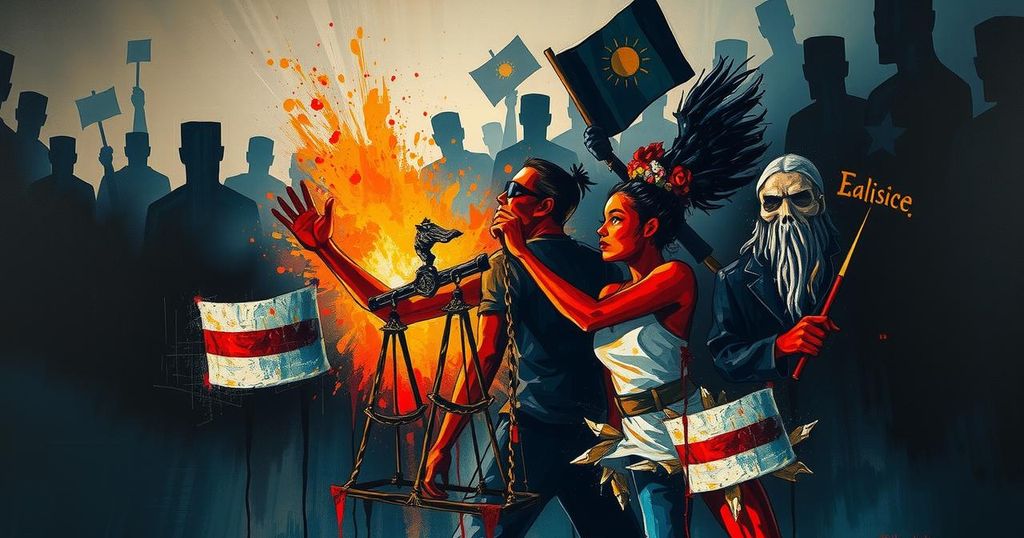Kenya to Charge Police Officers with Murder Over Blogger’s Death in Custody
Kenyan prosecutors have charged six individuals, including three police officers, with murder over the death of political blogger Albert Ojwang while in custody. His suspicious death, previously attributed to suicide, spurred significant protests against police brutality. Activists accuse authorities of downplaying the gravity of the situation, calling for greater accountability from higher-ranking officials.
Nairobi — In a significant development, Kenyan prosecutors have decided to move forward with murder charges against six individuals, including three police officers, linked to the death of a political blogger. This news comes after the death of Albert Ojwang, a 31-year-old teacher, while in police custody, which has led to widespread protests across the country.
The Office of the Director of Public Prosecutions announced that the six suspects would face arraignment on Tuesday. Details emerged that one of the officers charged was a station commander at the Nairobi precinct where Ojwang was detained. As of now, it remains unclear if these defendants currently have legal representation.
Ojwang’s arrest earlier this month stemmed from an investigation initiated by a complaint from Deputy National Police Chief Eliud Lagat. Lagat accused Ojwang of disseminating false and malicious information on social media, which allegedly tarnished his reputation, according to reports from the police watchdog.
Initially, police claimed that Ojwang had taken his own life, but this narrative changed following an autopsy revealing that his injuries resulted from physical assault. This stark revelation ignited protests against police brutality, which have continued for two weeks. Additional demonstrations are anticipated on Wednesday, marking a year since a significant protest that led to the storming of parliament, ending in tragic loss of life due to police intervention.
Activists have voiced their frustrations, alleging that the decision to charge only lower-ranked officers signifies an attempt to cover up the broader issue of police misconduct. They pressure authorities to hold accountable those who ordered the harsh treatment of Ojwang.
In response to the growing outrage, Eliud Lagat temporarily stepped back from his duties last week while investigations into Ojwang’s death are conducted. Notably, another officer charged, James Mukhwana, disclosed in his testimony that his superiors instructed him there was “an order from above” to mistreat Ojwang upon his arrival at the police station, further complicating the narrative of the case.
As the story unfolds, calls for justice and transparency in the Kenyan police force continue to intensify. The situation highlights the ongoing struggle for accountability within law enforcement in Kenya.
In conclusion, the decision to charge police officers with murder in relation to the death of Albert Ojwang underscores the serious allegations surrounding police conduct in Kenya. As protests continue and more revelations emerge, the outcome of the proceedings could have far-reaching implications for how law enforcement is perceived and held accountable. Advocates for change remain vigilant, calling for justice not only for Ojwang but for all victims of police brutality.
Original Source: www.yahoo.com




Post Comment